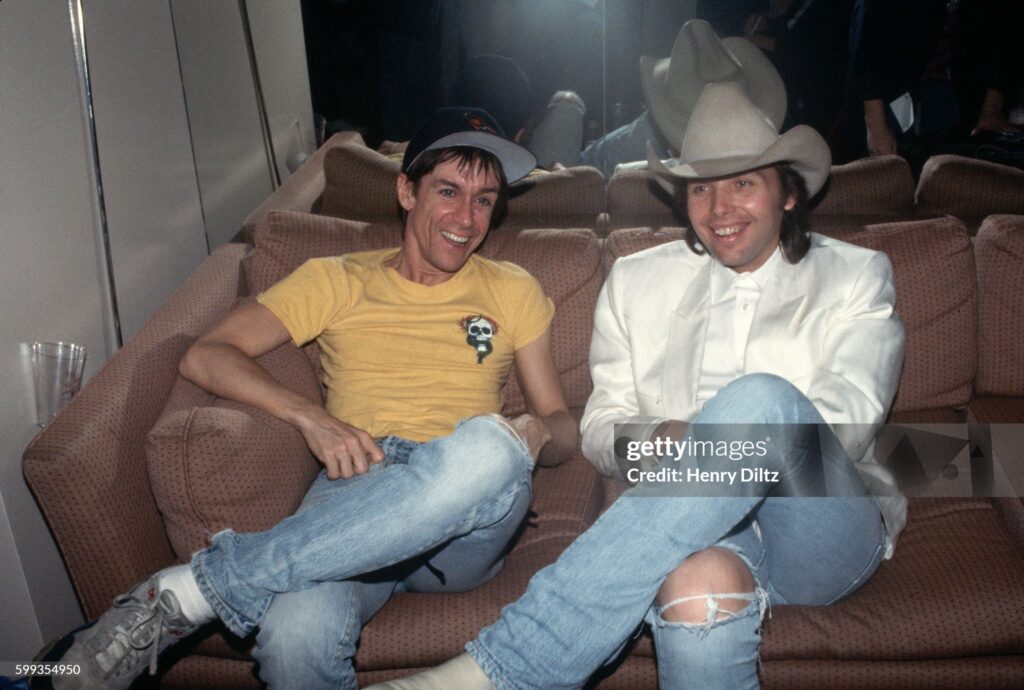
A mournful, small-courtroom parable about injustice and the way time hardens into a sentence.
When Dwight Yoakam first placed “Twenty Years” on his early releases, it arrived not as a radio bid but as a bruised vignette — a short, sharp country tale tucked into the line-up of Guitars, Cadillacs, Etc., Etc. that announced a young artist’s devotion to storytelling and to the Bakersfield-tinged honesty he revered. The track is credited to Dwight Yoakam, was produced in collaboration with Pete Anderson, and first appeared on Yoakam’s independently issued Oak EP before being included on the expanded and widely distributed edition of his debut album.
Put plainly at the top because it matters for how you listen: “Twenty Years” is not a boastful outlaw anthem; it is a warning in miniature — three minutes of guitar, fiddle, and a voice that delivers judgment with the steady calm of someone who has watched the law and human spite do their slow, terrible work. The lyric tells the story of Henry, a man condemned to “twenty years behind steel bars” for a crime he did not commit, ruined by “the lie she swore in that district court.” The song’s narrator acts as the town’s witness and moralist: a voice telling other young men to heed the small, human signals of danger, because a joke, a slight, or a jealous whisper can calcify into forever.
Musically, the track feels like a battered postcard from a lonely county: brittle electric guitar lines meet a mournful fiddle and a rhythm that keeps its foot on the pedal without rushing. Pete Anderson’s production leaves space around Yoakam’s vocal so the words can land like stones — each image, each courtroom turn, is audible and blunt. This economy of arrangement is part of what made Yoakam’s early records feel urgent to older listeners then and now: they sound like songs that could have been sung in a honky-tonk long before they were ever recorded, songs that read like advice handed down over the counter of a late-night bar.
The story behind “Twenty Years” reflects Yoakam’s apprenticeship in country’s old songs and narratives. He came out of the Los Angeles scene with an ear for the Bakersfield sound and a reverence for country’s moral songs — the ones that explain consequences without sermonizing. Writing his own material, Yoakam often chose characters from the quieter margins: drifters, wronged men, figures whose fate reveals the social codes of small towns. In that sense, “Twenty Years” sits beside his other early work as a piece of moral lore: a cautionary tale that carries, in its specifics, a universal weight.
For listeners who grew up with these records, the song’s images are cinematic in their simplicity: the sheriff approaching, the bench, the whispered lie that becomes a verdict. Those who are older now may find the song especially resonant because it connects a private hurt to public consequence — the way private slander can be formalized by law, how relationships and reputations translate into sentences. The emotional center of the song is not melodrama but recognition: we have all seen how small cruelties compound; Yoakam simply gives that observation a voice and a melody.
It’s also important to say clearly: “Twenty Years” was an album track and a fan favorite rather than a chart single — it was never pushed as a hit in the way “Honky Tonk Man” or “Guitars, Cadillacs” were, and you won’t find it on the singles charts for that era. Instead, its life has been quieter and steadier: it lives on the album, in live sets, and in the memory of listeners who cherish Yoakam’s early work for its narrative courage and its lean musical honesty.
So when you sit with “Twenty Years” now, let it feel like a late-night talk from an old friend: spare, plainspoken, and urgent in the gentlest way. It is a story-song that asks us to watch one another, to heed the small betrayals before they harden into ruin, and to remember that sometimes the most country of truths is simply this — that time will always have the last word, and sometimes that word is a sentence.